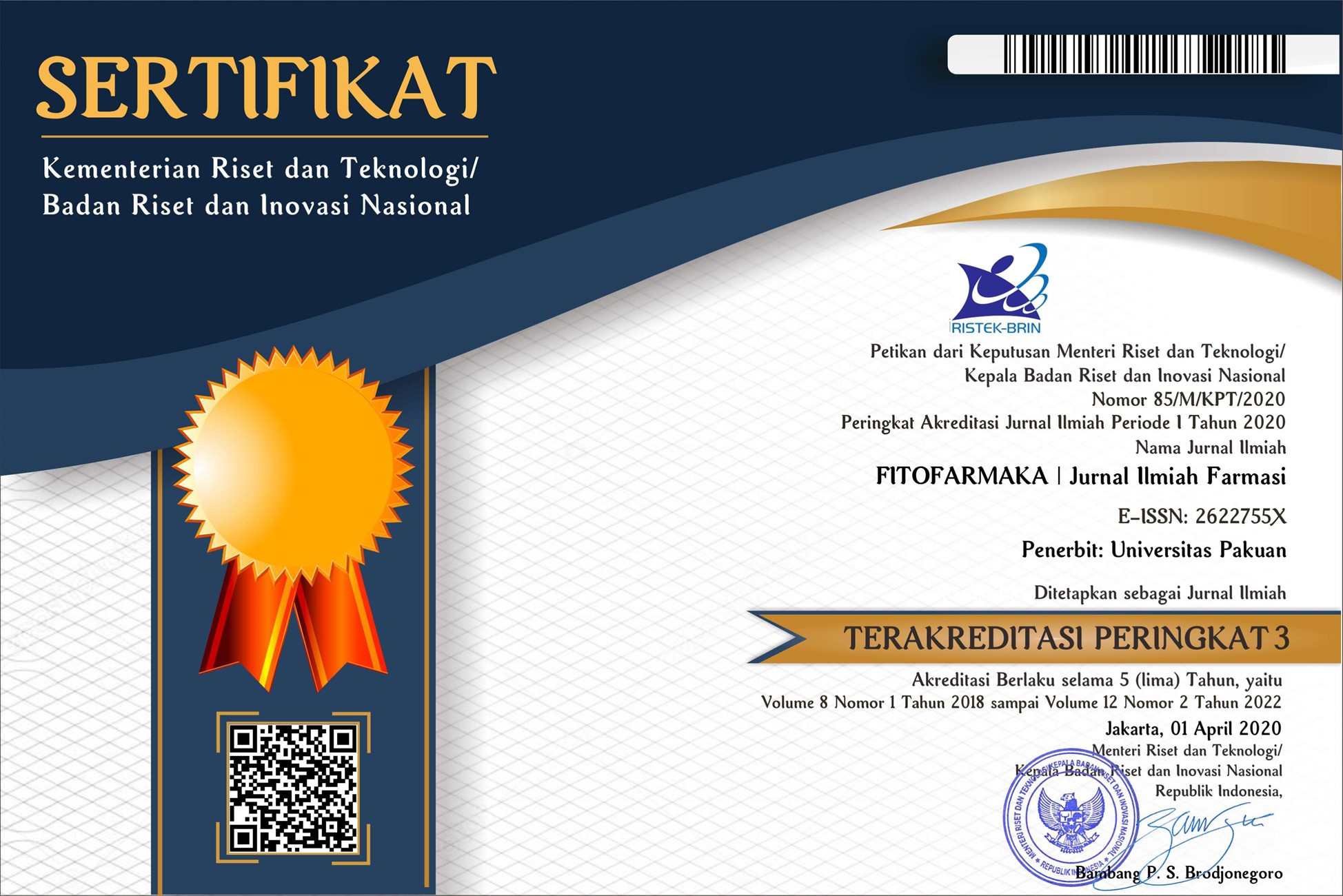Publication Ethics
FITOFARMAKA: Jurnal Ilmiah Farmasi (FJIF) follows guidelines from Committee on Publication Ethics (COPE) in facing all aspects of publication ethics and, in particular, how to handle cases of research and publication misconduct. All articles in this journal involving human subjects should respect principles of research ethics as described in Declaration of Helsinki and studies involving animals should obey the ARRIVE and Guide for the Care and Use of Laboratory Animals.
FJIF adapts COPE to meet high quality standard of ethics for publisher, editors, authors, and reviewers. As an essential issue, publication ethics needs to be explained clearly to improve the quality of the research worldwide. In this part, we explain the standard for editors, authors, and reviewers. In addition, publisher don't have right to interfere with the integrity of the contents and only support to publish in timely manner.
Standards for Authors:
- The author ensures that the material to be published have not been published and sent to another place simultaneously.
- Authors must ensure the authenticity of their research and they have cited the others opinions correctly in accordance with the reference format.
- The author is not involved in plagiarism.
- 'Salami' publication is prohibited in FJIF.
- Authors must follow the criteria described in the writing guideline for the authors of FJIF.
- Authors are not advised to publish any personal information that may make identity of the patient recognizable in the form of the description section, photograph or genealogy. If photographs of patients are very important and indispensable as scientific information, the authors should have received approval in written form and has clearly stated it.
- In the case of experiments on humans, the authors state that the study was in accordance with the ethical standards of the Helsinki declaration, which leads the human experiment. If there are doubts raised whether the study took place in accordance with the declaration, the author should explain it. In the case of experiments on animals, the author has certified that the author has followed the guidelines and abroad with regard to animal experiments in the laboratory.
- Authors must submit the data and details to the editor, if suspected falsification or fabrication of data.
- The authors should explain everything that can give rise to a conflict of interest such as employment, research costs, consulting fees, and intellectual property on guidelines for FJIF authors.
Standards for Editors:
- The Editor is responsible for every article published in FJIF.
- Editor helps the authors follow the guidelines for authors.
- The editors may communicate with other editors or reviewers in making a final decision.
- Editor assess the manuscript publication objectively, regardless the author's racial background, religion, gender, seniority, ethnicity, political beliefs, institutional affiliation or nationality. The editor must relinquish his/her duties if there is a potential conflict of interest.
- The Editor must ensure that the document which is sent to the reviewers do not contain information on the author and vice versa.
- The editor's decision must be notified to the author along with the reviewers' comments, except which contain offensive or libelous statements.
- Editors should respect the request of the author that the order is not subject to review by any other person for any reason.
- Editor and all staff must ensure the confidentiality of the submitted manuscript.
- If there is a suspicion of error or dispute in writing, Editor solves it by using the COPE as guide.
Standards for Reviewers:
- Reviewers need to comment on ethical questions and possible research and publication misconduct
- Reviewers will do the work in timely manner and should notify editor if they can not complete the work
- Reviewers need to keep the confidentiality of the manuscript
- Reviewers should not accept to review the manuscripts in which there is potential conflict of interest between them and any of the authors
Updated - July 4th, 2024













